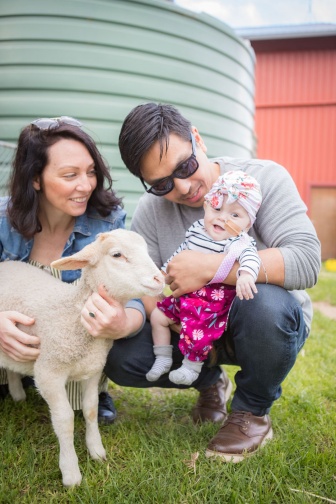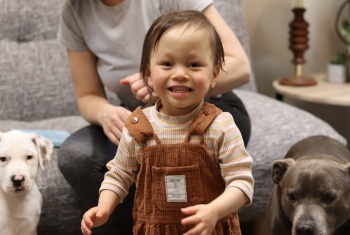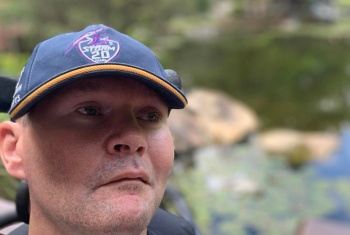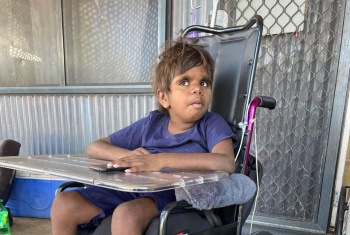Weighing only 565 grams, Willow Beyer came into the world ten weeks early but already tenacious.
“She stopped breathing and she needed help but she didn’t need to be intubated, she was a fighter,” said her mother, Kerry Chaplin of Craigieburn, Victoria.
But a month later, Willow’s bowel stopped working properly and she needed the first of several life-saving surgeries.
At four months she contracted meningitis and it permanently blocked the absorption of cerebrospinal fluid in her brain. Willow needed her first brain surgery.
By the time Willow left hospital at seven and a half months’ old, doctors had revived her multiple times but Willow wasn’t giving up.
Today, Willow is nearly two years old and reaching milestones once unimaginable. She’s showing signs of walking and being on track for an independent life.
Willow’s Mum says she’s making extraordinary progress, thanks to support from the NDIS through an Early Childhood Early Intervention (ECEI) plan.
“It’s like a dream, sometimes I look at her and I just can’t believe it, said Kerry. “We thought we were going to lose her so often and now she’s just this crazy determined little human and she’s so funny. It’s really incredible to see her achieve all these things.”
Due to her premature birth and early health difficulties, Willow lives with significant developmental delays, hearing loss, acquired hydrocephalus (excess fluid in the brain) and failure to thrive.
She also developed an oral aversion and is fed through a percutaneous endoscopic gastrostomy (PEG) feeding tube.
But Kerry says joining the NDIS early last year changed Willow’s life.
“The NDIS has been nothing but amazing for us. When Willow came home from hospital, she had a lot of physical and emotional adjustments to make. We couldn’t do simple things with her like just take a walk in the park,” she said.
Willow has come a long way since then. In February this year, she sat up unassisted. A month later, she began to roll over. In May, she started weight-bearing on her legs while holding her mum and dad’s hands. By June, she had started crawling.
Recently, Willow started eating more—the first step to a massive life change, which is also expected to help her learn to speak.
“Early intervention makes a world of difference,” she said. “Willow is a happier child now because she is gaining strength, moving around and less frustrated. She’s able to do things she wants to do and she’s enjoying life and that makes us happy as well. She’s always laughing, and she loves learning new things.”
Willow’s ECEI plan funds several therapies, including physical and occupational therapy and osteopathy. It also funds a feeding clinic, with a dietician and speech pathologist who specialise in helping babies and children who don’t eat.
“It was massively important, and we just simply wouldn’t have been able to afford it without the NDIS,” said Kerry.
Kerry now works from home for a NDIS provider and says she couldn’t work without Willow’s NDIS support. Her partner and Willow’s father, Charles Beyer, is caring fulltime for Willow.
Willow’s NDIS support has continued throughout Melbourne’s COVID lockdown.
“Everyone’s been really caring and we’ve been able to get everything that Willow needs. We were able to buy an iPad through her plan to have all her Telehealth appointments and she is just steaming ahead.”



